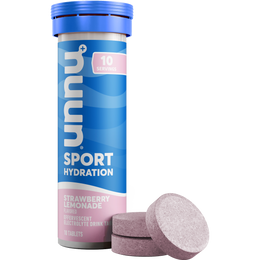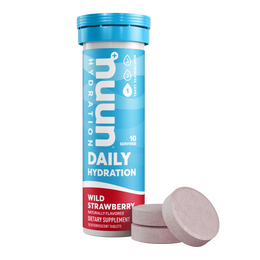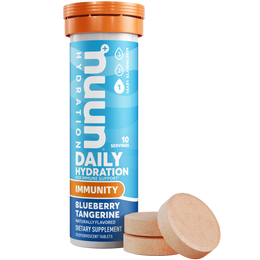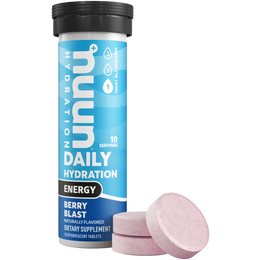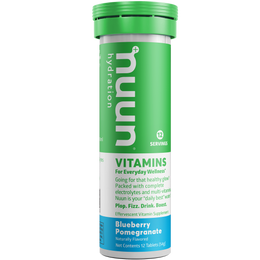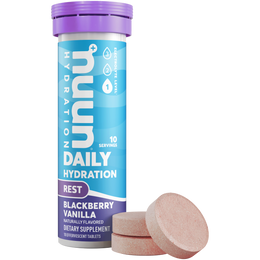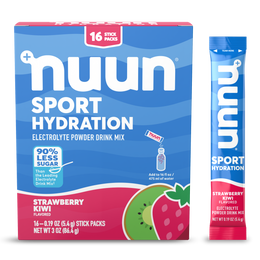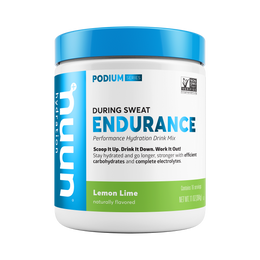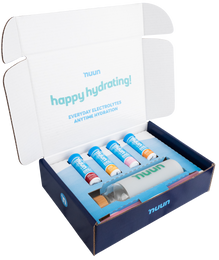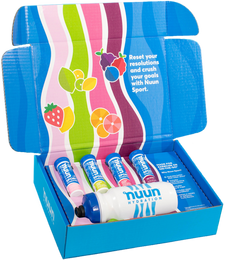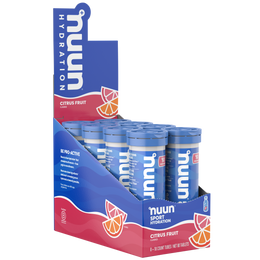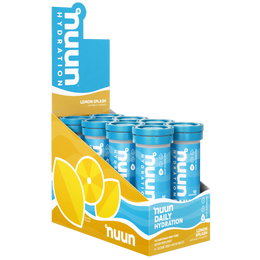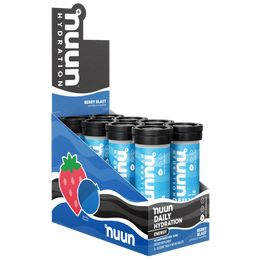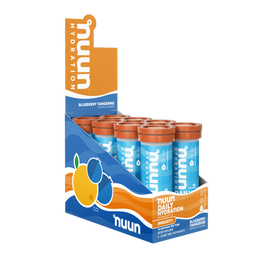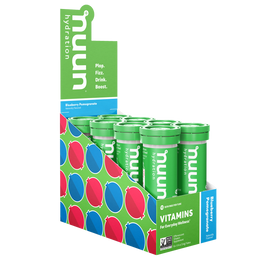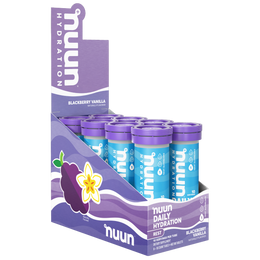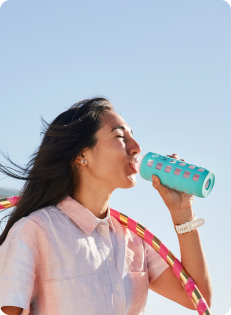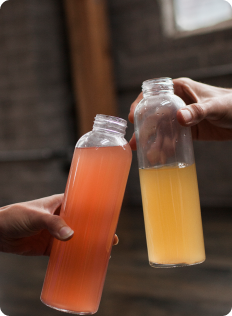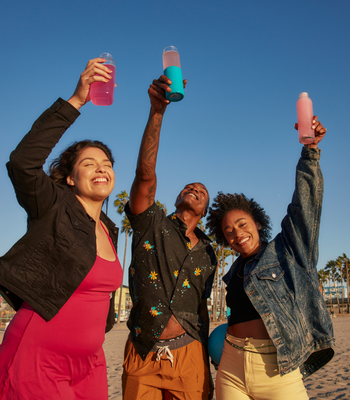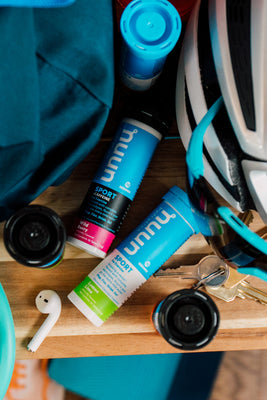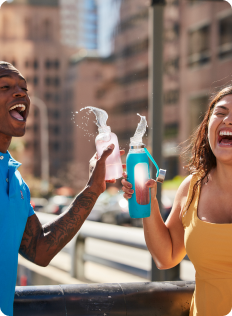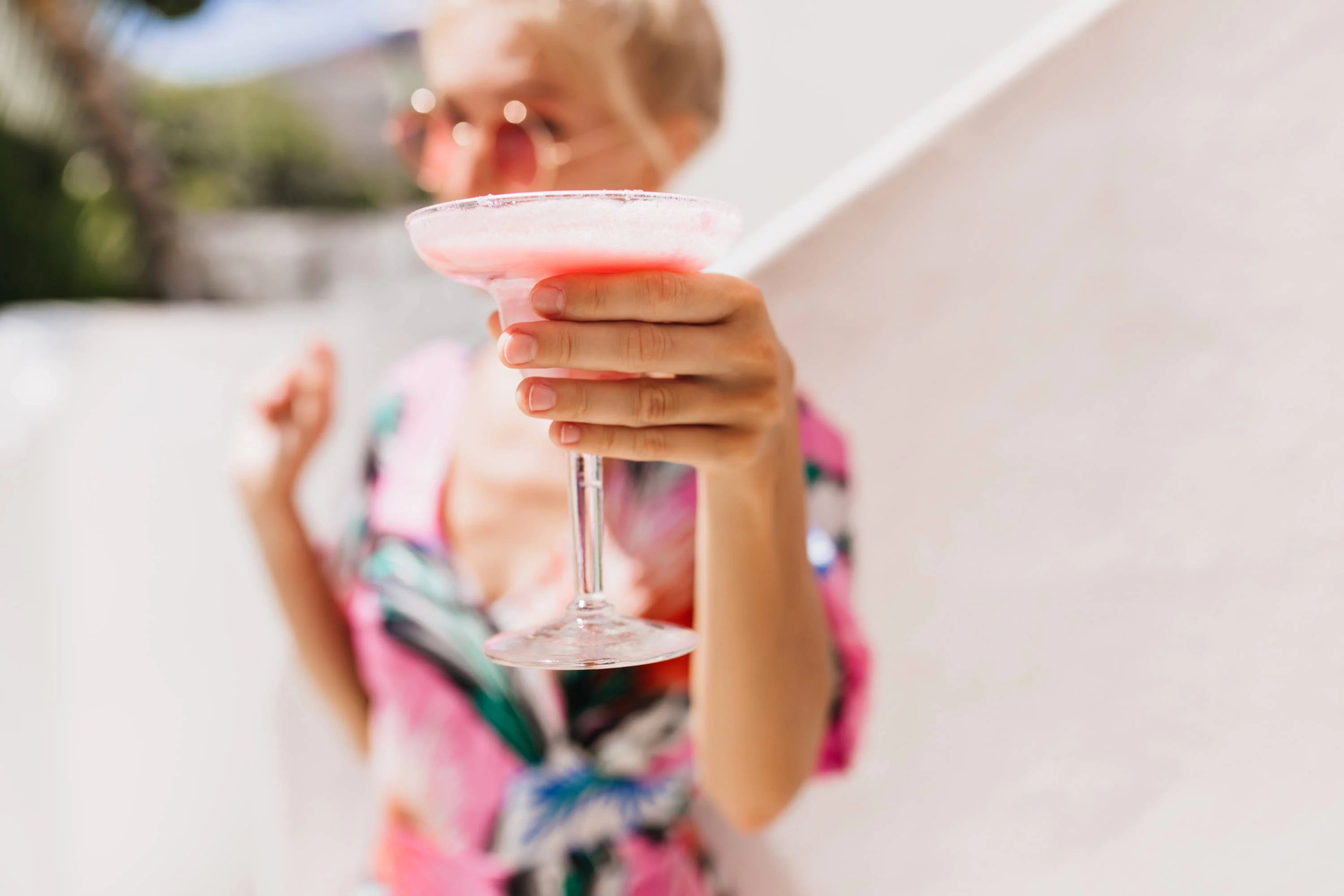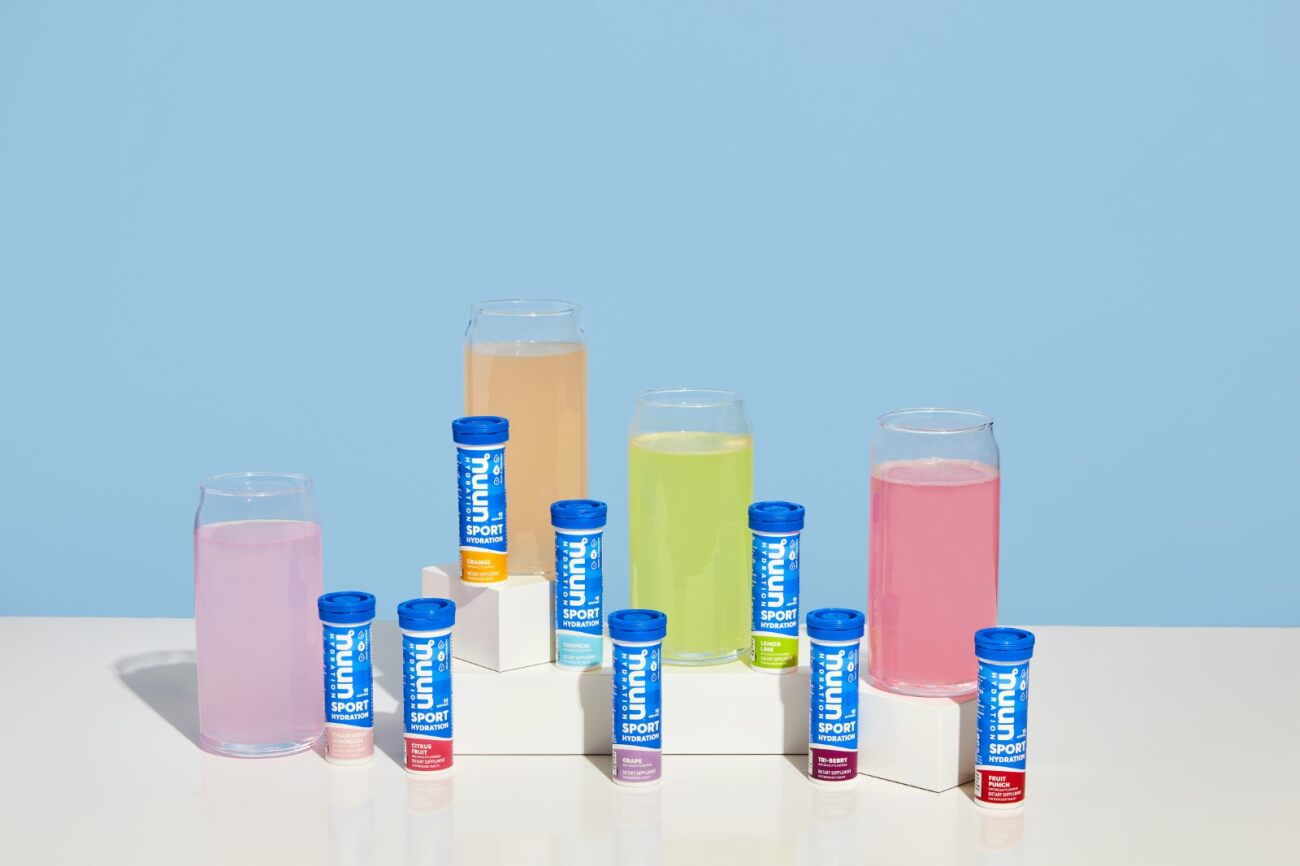How Does Dehydration Affect a Hangover?

Whether you’re celebrating at the finish line of a race, catching up with a friend over cocktails, or strategizing with your recreational kickball team at a local bar, there are plenty of reasons to enjoy an alcoholic beverage or two.
But if you’ve indulged before, you know that even just a few drinks can leave you feeling less than your best the next day. In part, that’s due to dehydration from alcohol, which can exacerbate hangover symptoms, including headaches, nausea, vomiting, dizziness, and fatigue. And those symptoms, which are unpleasant on their own, can be even more detrimental for those who plan to run, bike, or work out the next day.
Why does alcohol dehydrate you? And what can you do to recover if you’re dehydrated from a night of drinking — especially if you have a workout planned the next day? We explore everything you need to know.
Why Does Alcohol Dehydrate You?
You’re probably well aware of the effects that too much alcohol can have on your body: a splitting headache, nausea and vomiting, dizziness, poor sleep, excessive thirst, and fatigue. Several different factors contribute to hangovers, but dehydration plays a major role in causing and worsening these symptoms.
Dehydration from alcohol may seem counterintuitive, since, after all, you are taking in fluids. So why does alcohol dehydrate you?
Alcohol is a diuretic.
Alcohol makes your body produce more urine than other liquids, like water or juice, do. According to one study, alcohol can produce urine flow within just 20 minutes of consumption. Increased urine production leads to more frequent urination, which can cause your body to become dehydrated.
Alcohol has this effect because it inhibits the body’s production of vasopressin, an anti-diuretic hormone (ADH). Typically, ADH signals your kidneys to hold on to water. When you drink alcohol, that hormone is suppressed, causing your kidneys to release more water, in the form of urination.
Alcohol is a diuretic.
Alcohol makes your body produce more urine than other liquids, like water or juice, do. According to one study, alcohol can produce urine flow within just 20 minutes of consumption. Increased urine production leads to more frequent urination, which can cause your body to become dehydrated.
Alcohol has this effect because it inhibits the body’s production of vasopressin, an anti-diuretic hormone (ADH). Typically, ADH signals your kidneys to hold on to water. When you drink alcohol, that hormone is suppressed, causing your kidneys to release more water, in the form of urination.
This effect begins with drinks that contain a fairly low amount of alcohol. Drinks with even 3-5% alcohol, like most beers, begin to cause this dehydrating effect.
Does it Matter What You Drink?
In general, little research has been done to accurately determine if some forms of alcohol are more dehydrating than others. One study revealed that in elderly men, spirits and wine resulted in a short-term increased diuretic effect compared to beer — which may indicate a higher risk for dehydration — but after a 24-hour period, the effects of the different types of alcohol were essentially the same.
Some types of drinks may be more hydrating simply because they contain higher levels of non-alcoholic fluids. A beer, for example, typically contains high water content. Similarly, a shot of vodka mixed with juice or soda may be more hydrating than vodka alone, because it contains additional fluids.
Dark liquors, like brandy or bourbon, however, contain high levels of congeners, compounds that may worsen the severity of hangovers.
Ultimately, however, all types of alcohol can lead to dehydration, so it’s important to take a few precautions before and after you drink.
"Dehydration can lead to symptoms like excessive thirst, headaches, fatigue, and dry mouth — all of which can make your hangover even more intense."
"Dehydration can lead to symptoms like excessive thirst, headaches, fatigue, and dry mouth — all of which can make your hangover even more intense."
How to Prevent Dehydration from Alcohol
We’ll give you the bad news first: Proper hydration probably won’t prevent a hangover altogether. While drinking alcohol can lead to dehydration, dehydration is not considered a main cause of hangovers.
However, there’s still good reason to hydrate before and during a night of drinking. Dehydration can lead to symptoms like excessive thirst, headaches, fatigue, and dry mouth — all of which can make your hangover even more intense.
By hydrating properly before having a few drinks, you may be able to lessen the symptoms of your hangover. Make sure to follow these tips:
Follow these tips to prevent dehydration from alcohol:
Don’t drink on an empty stomach
With food in your stomach, your body will absorb alcohol more slowly, which can slow the effects of alcohol-induced dehydration.
Hydrate before drinking alcohol
If you’re already dehydrated when you begin drinking, your blood alcohol concentration may increase more quickly. By hydrating early, you can reduce how dehydrated you eventually become. A drink that includes electrolytes — like sodium, potassium, magnesium, and calcium — can help you maintain proper fluid balance as the night progresses.
Alternate between a glass of water and an alcoholic drink
Generally, alternating between alcoholic and non-alcoholic drinks will reduce the total amount of alcohol you consume. This will also enable you to stay ahead of the dehydration you’ll likely experience from alcohol.
Hangover Hydration: How to Reverse Dehydration from Alcohol
OK, but say you’ve already had a few drinks, and the next morning, you wake up with all the symptoms of a hangover. What is the best strategy to reverse dehydration from alcohol?
Hint: It’s not simply chugging several glasses of water. Here are some tips for how to best rehydrate after a night of indulging:
1. Incorporate electrolytes
While drinking as much water as possible may seem like an effective strategy to get hydrated, much of that water will simply pass right through you, without giving you the benefits of proper hydration.
Instead, it’s important that you choose a drink that contains electrolytes. Electrolytes are minerals that keep your body functioning properly and reverse dehydration by helping you retain water. Oral rehydration solutions (ORS) and electrolyte drinks or tablets typically contain the right mix of salts and sugars to promote optimal hydration — especially after a hangover.
2. Choose water- and sodium-rich foods
While some people swear by a greasy, eggs-and-bacon breakfast to cure a hangover, choosing foods that are nutrient-dense can be a better source of hydration, which can put you on a quicker road to recovery.
Pickles, for example, are high in sodium, an electrolyte that you may lose when drinking and urinating frequently. Chicken noodle soup is also a high-sodium choice that can help you rehydrate effectively.
Eating foods that are high in water content, like watermelon and cucumber, can also be beneficial.
Does Alcohol Inhibit Athletic Performance?
Rehydrating is especially important if you plan to run, cycle, or work out the day after a night of drinking. That’s because alcohol can have a negative impact on your workout the next day. Here’s how:
1. Decreased performance due to dehydration
Hypohydration, which is dehydration that is induced prior to exercise, can further reduce aerobic endurance. That means if you begin a workout dehydrated, due to a few drinks the night before, you will likely struggle to perform your best.
And if the exercise itself dehydrates you further (also known as exercise-induced dehydration), your performance may suffer even more.
2. Lower energy
When you have alcohol in your system, your liver prioritizes the breakdown of that alcohol, which means it may not perform its other functions at full capacity — such as producing glucose. If your body doesn’t produce enough glucose, your body will likely become tired more quickly, so you’ll have a hard time keeping up with a workout.
3. Increased cramps
Because your liver is working hard to rid your body of the alcohol, it also won’t be as effective at clearing out lactic acid, which your body produces during exercise. Lactic acid buildup in your body can lead to muscle cramps and fatigue.
"Studies show that even modest dehydration (less than 2%) can have a negative impact on athletic performance."
" Dehydration can lead to symptoms like excessive thirst, headaches, fatigue, and dry mouth — all of which can make your hangover even more intense. "
To ensure you’re able to go on your scheduled run or bike ride, or complete your workout, rehydration — specifically with the following electrolytes — is critical.
- Sodium helps promote water retention, which can help you rehydrate your body effectively.
- Potassium helps alleviate and prevent muscle cramps.
- Magnesium is closely related to muscle relaxation and overall function.
There’s nothing wrong with indulging in a few alcoholic drinks, but it’s important to be aware of the risks of dehydration — especially if you have a workout planned for the next day. By taking the proper precautions before and after drinking, you can stay ahead of your hydration, so you can feel and perform at your best.


